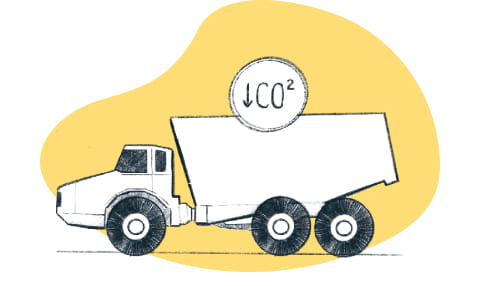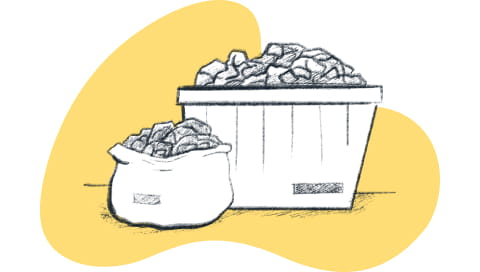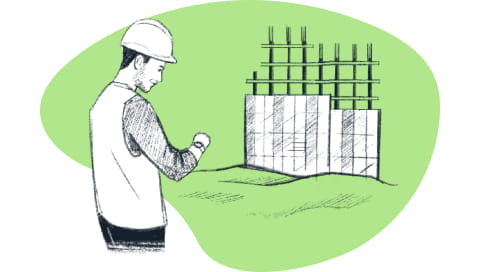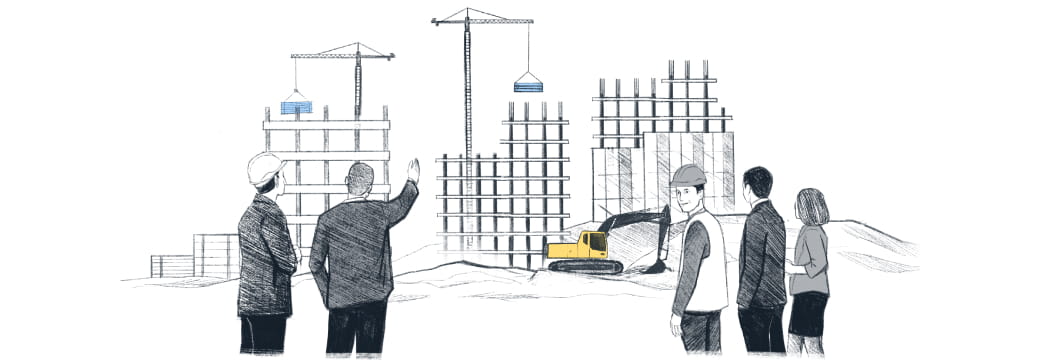Helping the construction industry build a greener future
Our smart delivery software helps construction companies build in a way that’s cleaner, respects society and makes green projects financially viable.


Environmentally friendly
Fewer deliveries, lower emissions, and properly managed waste.
Economically viable
More projects finishing on time and to budget, and more easily achieved certification.

Socially aware
Safer workers, happier citizens, and a better environment for people to inhabit.
ProperGate helps deliver projects that are environmentally friendly

Reduced pollution & C02 emissions
ProperGate optimises on-site logistics, resulting in fewer journeys of shorter duration. This means reducations in all manner of harmful pollutants, including CO2.
And the CO2 that is produced is monitored and reported on, allowing for goal-setting and continuous, measurable improvements.

Enhanced waste management
Sites using ProperGate generate less waste, and the waste they do generate is better handled.
- Less waste produced
- Full segregation
- Tracking and monitoring
- Automated removal
- Appropriate reuse of damaged materials
- Easy statutory compliance
Better waste management drives down costs, drives up recycling/reuse, and improves the reputations of all those involved.
Economically viable

Projects are more profitable
For construction to be sustainable, it has to make sense economically.
The gains in productivity from using ProperGate can turn failing projects into successful ones – and make unviable projects viable.
The financial gains benefit everyone in the supply chain – from investors and general contractors to subcontractors and suppliers.
ProperGate facilitates social distancing, so work can continue despite the pandemic.

Ease of getting certification
Having the right green building certification can make a big difference to real estate investors.
We give construction companies the tools they need to achieve the standards required by LEED and BREEAM certification – and the monitoring and reporting capabilities to prove it.


And socially responsible

Better for citizens
No one wants their lives disrupted by a badly managed construction site. ProperGate fixes that.
Fewer journeys of shorter duration meatranslates to:
- Less traffic, noise, and on-street queuing
- Lower stress levels and an improved standard of living
If you have to live near a construction site, you’re better off if it uses ProperGate.

Safer for workers
Construction companies have a duty of care to their workers. And ProperGate makes it easier for them to meet that responsibility.
- Reduced time pressure due to proper allocation of resources, leading to fewer accidents
- Specific laying down instructions instead of guesswork
- The right equipment booked in advance
- Faulty equipment 'unbookable'
- Materials properly stored
ProperGate makes remote communication the norm, helping keep workers safe.
Let's build a cleaner construction industry together
It's packed with sustainability features
 Laying-down instructions
Laying-down instructions
 Socially distanced communication
Socially distanced communication
 CO2 emissions monitoring
CO2 emissions monitoring
 Materials tracking
Materials tracking
With ProperGate, sustainability comes as standard
And it works for everyone

Investors
Projects require a lower initial investment, and are more likely to finish on time and to budget. Certification is easier to acquire and finished buildings are of higher quality.
General contractors
Projects are managed more effectively at every level, resulting in a greater chance of them turning a profit and finishing on time.
Subcontractor
Work is less likely to be delayed by third parties, meaning time pressures are reduced, resources can be optimised, and companies can finish the job and move onto other contracts.
Suppliers
Delivery journeys are fewer in number, shorter, and more predictable, leading to lower fuel bills and a more efficient use of people and equipment.
Municipalities
Cities can better fulfil their obligations to their citizens, with fewer traffic issues, cleaner air, and less disruption in general.
Workers
Construction workers benefit from reduced stress, clearer work instructions, safer working conditions, and a greater chance of finishing the day on time.
Citizens
Living conditions are better all round, thanks to improved air quality, reduced disruption, and higher quality buildings.
